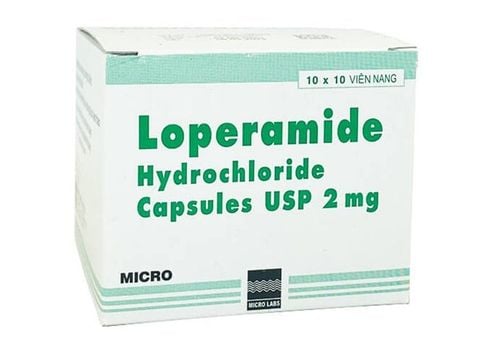This is an automatically translated article.
Children do not absorb nutrients, also known as malabsorption syndrome. There are many causes of this condition, including abnormalities in the intestinal wall, inability to produce digestive enzymes, and abnormalities in the intestinal microflora.1. What is malabsorption syndrome?
Malabsorption syndrome is a condition in which a child's body does not absorb nutrients from the digestive tract. Consequences of malabsorption are stunted children, malnutrition, growth retardation. Malabsorption syndrome has clinical features including:Changes in growth and weight: Decrease in height and weight growth chart indices, inadequate energy absorption will lead to the condition underweight and retarded children. Persistent diarrhea: Diarrhea that persists for at least 3 times per day and for more than 4 weeks, loose stools or stool volume greater than 200g/day is one of the features of malabsorption syndrome. Fatigue: Is a symptom of excess fat in the stool and the stools are large, colored and fishy. The child's stool floats on the surface of the water and is difficult to flush, after flushing, there is still a line of grease around the toilet. Signs of deficiency symptoms such as: Non-anemic iron deficiency, iron deficiency anemia, edema due to malnutrition, bleeding due to vitamin K deficiency, folate deficiency or vitamin B12 deficiency.

Trẻ không hấp thụ chất dinh dưỡng khiến nhiều bậc cha mẹ lo lắng
2. Why do children not absorb nutrients?
There are many causes leading to the child's body not absorbing nutrients including:2.1. Mucosal causes Celiac disease is commonly seen in young children due to an allergy to gluten in the diet leading to atrophy of the villi. The consequence is a reduced surface area for absorption. A strict, gluten-free child's diet completely changes this process. Cow's milk intolerance is also one of the causes of malabsorption in children. Soy milk intolerance Fructose intolerance malabsorption: Reducing fructose malabsorption using glucose. Infections: Tuberculosis, giardiasis, hookworm parasites,... 2.2. Causes in the digestive tract Pancreatic insufficiency: Chronic pancreatitis, cystic fibrosis, zollinger-ellison syndrome, pancreatic cancer, cystic fibrosis,... Decreased bile secretion due to obstructive jaundice or due disease of the terminal ileum. 2.3. Caused by the structure of the digestive tract Food is pushed to the intestines quickly as a result of surgery such as gastrojejunostomy, after gastrectomy, after surgery to cut the vagus nerve. Small Intestinal Microbial Syndrome is often associated with malabsorption Intestinal fistula, diverticulum obstruction, Crohn's disease, amyloidosis, short bowel syndrome, radiation enteritis, mesenteric ischemia, eosinophilic esophagitis

Hội chứng kém hấp thu là một trong những nguyên nhân khiến trẻ không hấp thụ chất dinh dưỡng
Besides, to prevent this, your baby needs to add the necessary micronutrients: Zinc, selenium, chromium, Vitamins B1 and B6, Ginger, acerola fruit extract (vitamin C), ... to improve taste, eat well, reach the correct height and weight, and exceed the standard, have a good immune system, strengthen the resistance to get sick less often and have less digestive problems.
The improvement of symptoms can take place for a long time, so it is recommended that parents be calm and persistent when supplementing with nutrients for children, even through eating or functional foods. In particular, the use of functional foods should choose those of natural origin that are easily absorbed, do not allow simultaneous use of many types or continuously change the types of functional foods.
For more nutritional knowledge and child care for each age, parents should regularly visit the website vimec.com and make an appointment with the leading doctors, pediatric and nutrition experts of the National General Hospital. Vinmec when needing advice on children's health.













